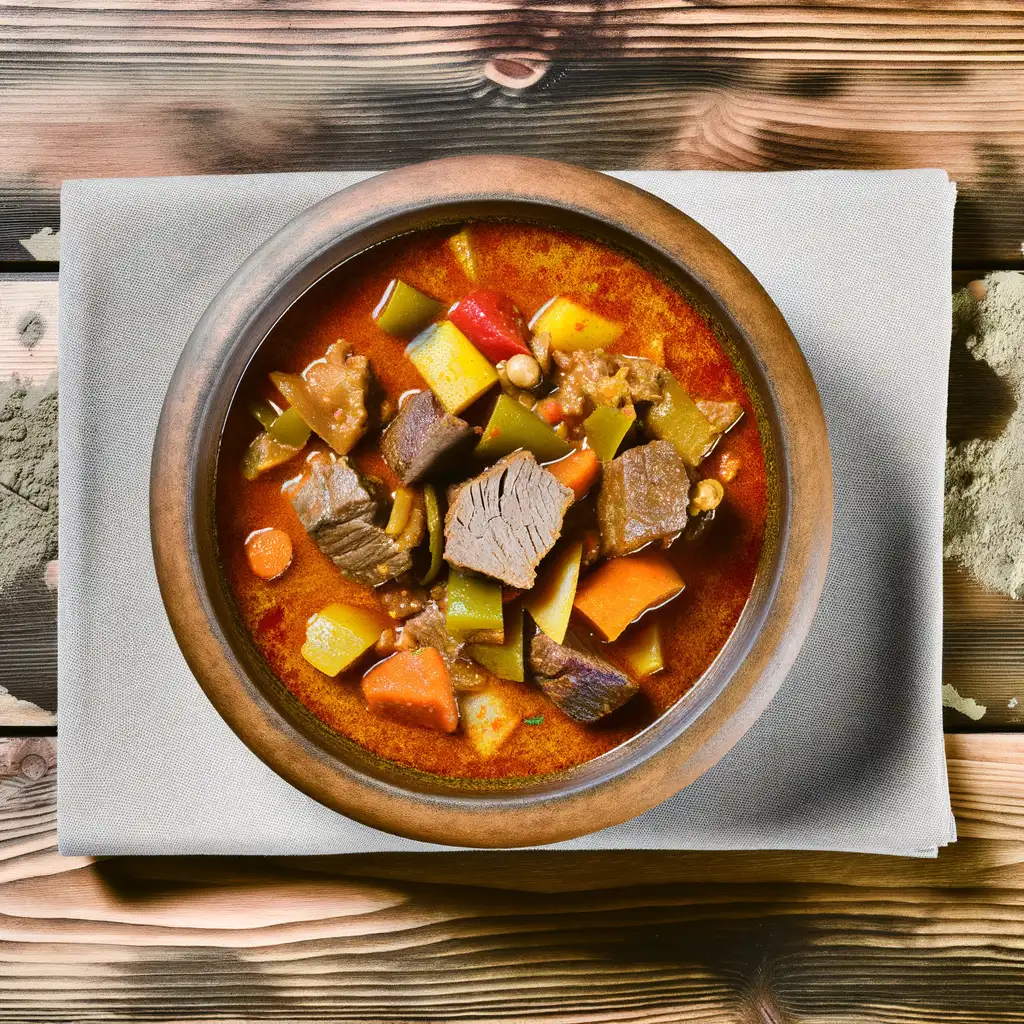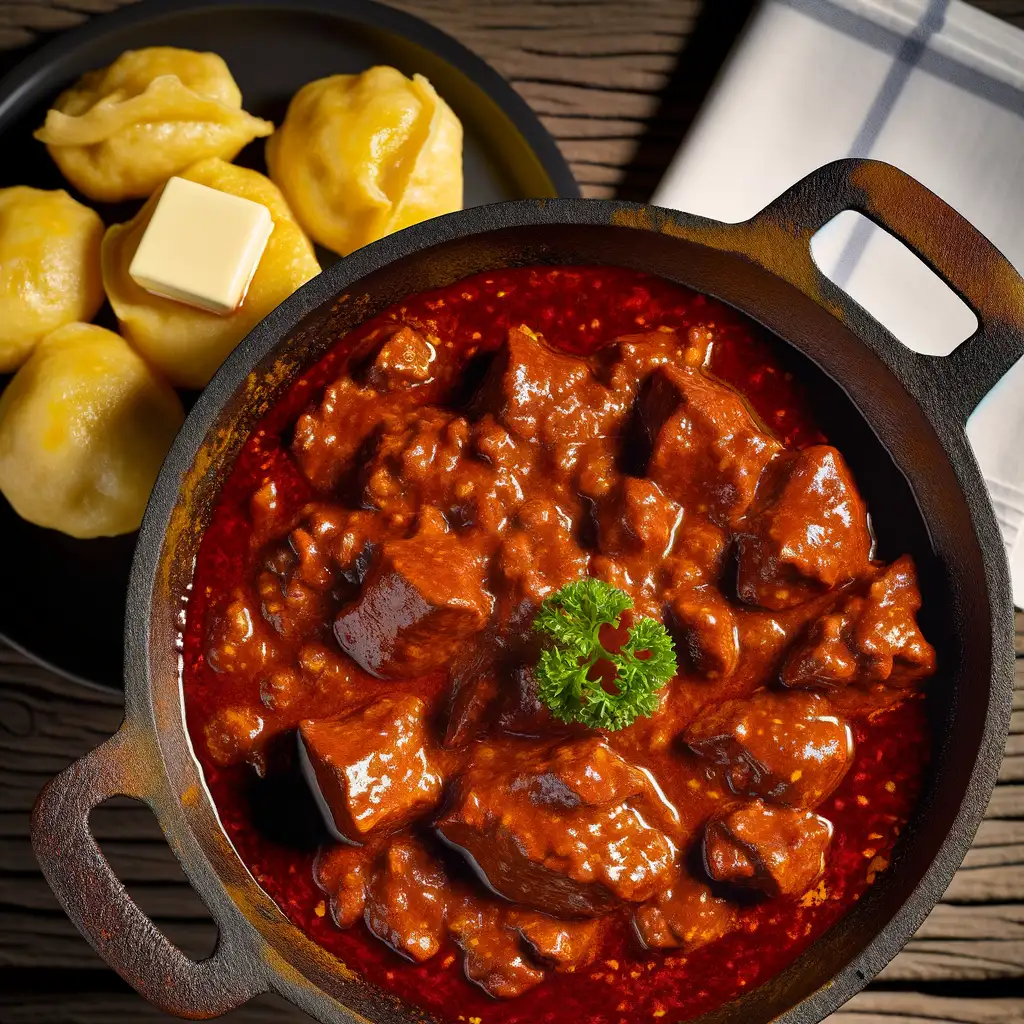



If you ever find yourself craving a blend of relaxation and a touch of old-world charm,Hévíz in Hungary is the place to be. Imagine stepping into a town where the air carries a gentle warmth,scented faintly with fresh pine and the earthy aroma of thermal waters. The heart of Hévíz is its famous thermal lake,a natural wonder that feels like a warm embrace,inviting you to soak away any stress while surrounded by lush greenery and the soft hum of nature. It’s not just a spa town; it’s a place where time slows down,and you can truly listen to the rhythm of your own breath. Wandering through the streets,you’ll notice the friendly smiles of locals who seem to move at a peaceful pace,as if they’ve mastered the art of savoring life’s simple pleasures. Quaint cafes spill out onto cobblestone sidewalks,where the rich aroma of freshly brewed coffee mingles with the sweet scent of pastries. Try a slice of traditional Hungarian cake or sip on a glass of Tokaji wine while watching the world drift by—it’s a small ritual that feels deeply satisfying. What makes Hévíz truly special is its blend of natural beauty and cultural warmth. The town’s spa culture is steeped in history,yet it never feels stuffy or pretentious. Instead,it’s welcoming,cozy,and quietly luxurious. Whether you’re floating in the mineral-rich waters or exploring the charming streets,Hévíz invites you to slow down,breathe deeply,and soak in a kind of peaceful joy that lingers long after you leave.
The information on this page is currently being reviewed by Tripkliq and should be used as a guide only
Eng word: Hello
Eng pronunciation: See-ya
Local language: Szia
Eng word: Goodbye
Eng pronunciation: Vees-laht
Local language: Viszlát
Eng word: Thank you
Eng pronunciation: Kuh-suh-nuhm
Local language: Köszönöm
Eng word: How much
Eng pronunciation: Men-yee-beh keh-rool
Local language: Mennyibe kerül
Eng word: Toilet
Eng pronunciation: Vay-tsay
Local language: WC
Eng word: Help me
Eng pronunciation: Sheg-eet-sheg
Local language: Segítség
Eng word: Yes
Eng pronunciation: Ee-gen
Local language: Igen
Eng word: No
Eng pronunciation: Nem
Local language: Nem
Eng word: Excuse me
Eng pronunciation: El-ney-zesht
Local language: Elnézést
Hévíz has a rich history dating back to Roman times. Archaeological findings suggest that the Romans were aware of the therapeutic benefits of the thermal waters and used the area for healing and relaxation.
The thermal lake of Hévíz, the largest biologically active natural thermal lake in the world, was discovered in the 18th century. Its unique properties have made it a popular destination for health tourism ever since.
The Festetics family, a prominent Hungarian noble family, played a significant role in the development of Hévíz. They were instrumental in promoting the therapeutic benefits of the thermal waters and establishing the town as a health resort.
The first bathhouse in Hévíz was built in 1795 by György Festetics. This marked the beginning of the town's transformation into a renowned spa destination.
During the 19th century, Hévíz saw significant development with the construction of new bathhouses, hotels, and other facilities to accommodate the growing number of visitors seeking the healing properties of the thermal waters.
Despite the challenges posed by World War II, Hévíz continued to attract visitors. The town's spa facilities were used to treat wounded soldiers, highlighting the therapeutic value of its thermal waters.
After World War II, Hévíz underwent extensive reconstruction and modernization. New medical and wellness facilities were built, further enhancing its reputation as a premier health resort.
Hévíz is not only known for its thermal waters but also for its rich cultural heritage. The town hosts various cultural events, including music festivals and art exhibitions, attracting tourists from around the world.
Today, Hévíz is a modern spa town that seamlessly blends its historical charm with contemporary amenities. Visitors can enjoy a range of wellness treatments, recreational activities, and cultural experiences.
In Hévíz, the most common Power Adaptor is Type C, Type F.



A hearty Hungarian stew made with beef, potatoes, and vegetables, seasoned with paprika and other spices.

A rich meat stew, usually made with beef or pork, cooked slowly with onions, paprika, and other spices.

A deep-fried flatbread, typically topped with garlic, sour cream, and cheese, popular as a street food snack.


A sweet, spiral-shaped pastry cooked over an open flame, often coated with sugar and cinnamon, popular at local fairs.

Stuffed cabbage rolls filled with a mixture of minced meat and rice, cooked in a savory tomato sauce.

A traditional fish soup made with fresh fish from Lake Hévíz, flavored with paprika and other spices, often served with bread.
Budapest feels like stepping into a storybook where history and modern life dance together effortlessly. The moment you stroll along the Danube River,with the majestic Parliament building glowing in the evening light,you sense a city that’s both grand and inviting. There’s a rhythm here—street musicians playing haunting melodies,the clinking of glasses in cozy ruin pubs,and the gentle splash of thermal baths that have been soothing locals for centuries. It’s a place where every corner whispers tales of empires past,yet pulses with youthful energy.
Wandering through the cobbled streets of the Castle District,you catch the scent of fresh pastries mingling with the earthy aroma of old stone walls. The vibrant markets buzz with vendors selling paprika,fresh bread,and sweet chimney cakes,tempting you to taste the rich flavors of Hungarian cuisine. Budapest’s character shines brightest in its contrasts:the elegant Art Nouveau cafés sit side by side with edgy street art,and the grand boulevards lead you to intimate courtyards where locals sip coffee and chat animatedly.
What makes Budapest truly unforgettable is how it wraps you in warmth—whether it’s the steamy embrace of a thermal bath on a chilly day or the friendly chatter in a bustling café. It’s a city that invites you to slow down,savor every moment,and discover stories hidden in its architecture,food,and people. Trust me,once you’ve felt Budapest’s pulse,you’ll carry a piece of it with you long after you leave.
Vienna feels like stepping into a living storybook where every street hums with history and charm. The moment you wander through its grand boulevards,you’re wrapped in a warm embrace of baroque architecture,cozy coffeehouses,and the gentle melodies of street musicians playing waltzes nearby. There’s a rhythm to the city — elegant yet inviting — where the past and present dance together effortlessly.
As you stroll along the Danube or through the lush gardens of Schönbrunn Palace,you catch the scent of freshly baked strudel mingling with the earthy aroma of roasted coffee beans from a nearby café. The city’s café culture is something special; sitting down with a slice of Sachertorte and a strong Viennese coffee feels like a small,delicious ritual. You’ll hear the soft clink of porcelain cups and the murmur of locals deep in conversation,making you feel instantly at home.
Vienna’s character is a blend of refined artistry and genuine warmth. It’s a place where grand opera houses and modern galleries coexist,and where the locals’ pride in their musical heritage is palpable. Whether you’re exploring the vibrant Naschmarkt with its colorful stalls or catching a live performance in a centuries-old concert hall,Vienna invites you to slow down,savor the moment,and soak in its timeless elegance.
Imagine stepping into a city where every corner feels like a scene from a timeless painting—Venice is exactly that kind of place. The moment you arrive,the gentle lapping of water against ancient stone buildings wraps around you like a soft melody. Instead of streets,there are winding canals,and instead of cars,gondolas glide silently beneath ornate bridges,their oars dipping rhythmically into the emerald water. The air carries a mix of salty sea breeze and the faint aroma of fresh espresso and baked pastries from nearby cafés,inviting you to slow down and savor the moment.
Venice has this magical,almost dreamlike quality. The light here is different—soft and golden in the mornings,casting long shadows on the labyrinth of narrow alleys and colorful facades. You’ll find yourself wandering without a map,getting delightfully lost among the bustling markets,where vendors call out in melodic Italian,selling everything from fresh seafood to vibrant Murano glass. The city’s rich history whispers from every corner,from the grandeur of St. Mark’s Basilica to the quiet charm of tucked-away piazzas where locals sip wine and chat as if time has paused.
What makes Venice truly unforgettable is its rhythm—slow,intimate,and deeply human. It’s a place where you can hear the laughter of children playing by the water,the clinking of glasses in cozy trattorias,and the soft hum of a street musician’s violin. Visiting Venice isn’t just about seeing a city; it’s about feeling its heartbeat,tasting its flavors,and becoming part of its endless story.
Imagine wandering through a city where the old world gently brushes against the new,and every corner hums with a quiet,inviting energy—that’s Zagreb. From the moment you step into its cobbled streets,you’re wrapped in a warm,lived-in charm. The air carries the scent of fresh coffee mingling with blooming linden trees,while the distant chatter from open-air cafés spills into the streets,inviting you to slow down and savor the moment. Zagreb doesn’t shout for attention; it welcomes you like an old friend,with a smile and a story.
The city’s character is a delightful blend of Austro-Hungarian elegance and vibrant Croatian spirit. Strolling through the Upper Town,you’ll catch glimpses of medieval towers and baroque facades,while the Lower Town buzzes with modern life—art galleries,quirky boutiques,and lively markets where you can taste local cheeses,honey,and the unmistakable sweetness of fresh figs. Music often drifts from street performers,adding a soundtrack to your exploration that feels both spontaneous and soulful.
What makes Zagreb truly special is its rhythm—unhurried yet alive. Whether you’re sipping a glass of robust Croatian wine in a cozy tavern or watching the sunset paint the rooftops in shades of gold and rose,there’s a sense of belonging here. It’s a city that invites you to not just see it,but to feel it,to become part of its story,even if just for a little while.
If you find yourself wandering through Slovenia,Opčina Ljubljana-Bežigrad offers a refreshing slice of everyday life with a quietly vibrant pulse. It’s not the flashy heart of Ljubljana,but that’s exactly what makes it feel so genuine—like stepping into a neighborhood where locals greet each other by name and the rhythm of daily life unfolds at a comfortable pace. As you stroll along its streets,you’ll catch the scent of fresh coffee mingling with the earthy aroma of nearby parks,while the chatter of friendly conversations drifts from cozy cafés and bustling markets.
The architecture here is a charming mix of old and new,with quaint houses standing shoulder to shoulder with modern buildings,reflecting a community that honors its roots while embracing the future. On weekends,the local farmers’ market bursts to life with colorful stalls offering everything from ripe,sun-kissed fruits to homemade pastries that melt in your mouth. It’s the kind of place where you can savor a leisurely breakfast,watching the world wake up around you.
What really sets Opčina Ljubljana-Bežigrad apart is its warm,unpretentious spirit. It’s a neighborhood that invites you to slow down,soak in the simple pleasures,and connect with the authentic Slovenian way of life. Whether you’re wandering through leafy parks,sampling local flavors,or just sitting on a bench watching the day unfold,you’ll feel a comforting sense of belonging that stays with you long after you leave.
If you ever find yourself wandering through Split,it’s like stepping into a living,breathing storybook where ancient history and vibrant modern life dance together effortlessly. The moment you stroll along the Riva promenade,the salty breeze from the Adriatic mingles with the aroma of fresh espresso and grilled seafood wafting from nearby cafés. Locals chat animatedly in the sun-dappled squares,their laughter blending with the distant hum of boats bobbing gently in the harbor. There’s a laid-back energy here that feels both timeless and alive,inviting you to slow down and soak it all in.
Split’s heart beats strongest in Diocletian’s Palace,a sprawling Roman fortress that’s less a museum and more a neighborhood where people live,shop,and gather. Walking through its ancient stone alleys,you’ll catch glimpses of colorful markets,artisan shops,and cozy taverns tucked into centuries-old walls. At night,the city transforms as lanterns flicker on,and the sound of live klapa singing—traditional a cappella harmonies—drifts through the air,wrapping you in a warm,soulful embrace.
What really makes Split unforgettable is how effortlessly it blends the old with the new. You can savor a plate of fresh octopus salad while watching fishermen haul in their catch,then wander to a rooftop bar for a cocktail as the sun sets behind the islands. It’s a place where every corner tells a story,every meal feels like a celebration,and every moment invites you to become part of its ongoing tale.
Tourists may be lured into booking non-existent or substandard accommodations through fake listings online.
Tourists may encounter currency exchange offices offering poor rates or charging hidden fees.
Unlicensed individuals may pose as tour guides and charge high fees for subpar or inaccurate tours.
Some taxi drivers may overcharge tourists by not using the meter or taking unnecessarily long routes.
Crowded tourist areas, such as near Lake Hévíz, may attract pickpockets targeting distracted visitors.
Certain restaurants may inflate bills by adding hidden charges or including items not ordered by the customer.
Some individuals or agencies may sell fake or overpriced spa packages, claiming to offer access to Hévíz's famous thermal baths.
Vendors may sell counterfeit or low-quality goods at inflated prices, targeting unsuspecting tourists.
Hungary has strict laws regarding the possession, use, and distribution of drugs. Both recreational and medicinal use of cannabis and other controlled substances are illegal. Tourists should be aware that even small amounts of drugs can lead to severe legal consequences, including fines and imprisonment. It is important to avoid any involvement with illegal drugs while visiting Hévíz.
In Hévíz, Hungary, smoking is generally prohibited in indoor public places, including restaurants, bars, and public transportation. Smoking is also banned in certain outdoor areas such as playgrounds and near the entrances of public buildings. Designated smoking areas may be available in some locations. Tourists should look for signs indicating smoking restrictions and adhere to local regulations to avoid fines.
Vaping in Hévíz follows similar regulations to smoking. It is prohibited in indoor public spaces and certain outdoor areas. While vaping is less restricted than smoking, it is still advisable to use designated areas and be mindful of local rules and signage. Tourists should be aware that some establishments may have their own policies regarding vaping.
What are other people saying about Hévíz?
Recent Social posts about Hévíz
There is nothing to show you for now.